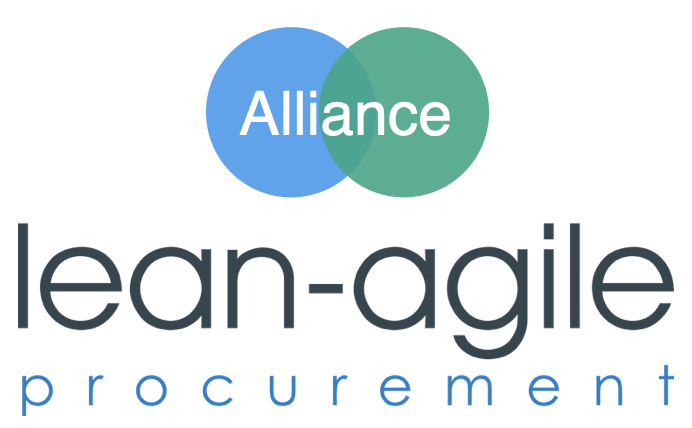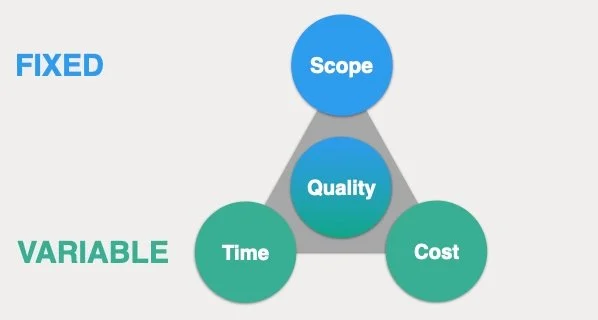
Contract Types
Fixed Scope & Fixed Price
Fixed Scope & Fixed Price Contract
Characteristics
Category
Iron Triangle
In a fixed scope and fixed price contract, the scope is fixed, while time, cost, and often quality may become variable due to underestimations or change requests.
Agile Contract?
Fixed Scope & Fixed Price Contracts are not conducive to Agile collaboration and do not qualify as Agile contracts. They are designed for a more traditional Waterfall approach.
A Fixed Scope & Fixed Price Contract is a traditional agreement ideal for transactional relationships where both the scope and the solution are clearly definable and predictable.
Buyers Perspective
Example
An example of a fixed scope & fixed price contract is a small to medium construction project where all elements can be planned in advance, with predictable procedures and tasks, can be accurately estimated.
Also known as
Lump Sum Contract, Firm Fixed Price Contract, Stipulated Sum Contract, Turnkey Contract, Closed Book Contract
Vendors Perspective
Since the scope, costs, and quality are predefined, any discrepancies can lead to the need for change requests after delivery. This uncertainty can result in unexpected additional work, potentially eroding profit margins or even leading to losses.
Moreover, depending on the project's duration, the structured payment schedule can negatively impact the vendor's cash flow. If the scope is underestimated, the vendor may have to compromise on the quality of service to meet the agreed milestones within the fixed budget.
The scope, costs, and quality are fixed and predetermined, outlining the specific scope of work. This arrangement provides the buyer with a clear understanding of what they will receive and the associated costs. Typically, 2-3 predefined payments are scheduled at fixed intervals, which helps optimize cash flow and mitigate risk.
In this type of contract, a waterfall approach is often used, meaning that the business value is delivered upon project completion. This approach may allow risks to accumulate until the final feedback loop at the end of the project.
From the vendor's perspective, the biggest challenge in a fixed price, fixed scope contract is the risk of misunderstandings or inaccurate estimations of the scope at the outset.
Optimal if
Fixed price & scope contracts are ideal for straightforward to moderately complex projects where customer needs can be clearly identified and defined upfront. In these cases, the vendor can deliver the solution using proven capabilities and services, without necessitating changes during execution.
Challenges
Upfront Investment: A significant initial investment of time and resources is required from the buyer to define the project scope and specifications accurately.
Risk of Misestimation: Misunderstandings or incorrect estimations can lead to delays and increased costs, potentially resulting in a lose-lose situation.
Deferred Business Value: Business value is often delivered only at the end of the project, increasing the risk if the final product does not meet expectations.
Limited Flexibility: New ideas or changes typically result in additional costs and can delay the overall delivery.
Vendor Cash Flow Issues: The payment structure may lead to cash flow challenges for the vendor, particularly if the project is long-term.
Disputes and Underestimations: Significant underestimations or disputes regarding the initially defined scope can lead to commercial difficulties for the vendor.
Advantages
Effective Contracting in Predictable Scenarios: In contexts where project details are well-defined and predictable, fixed scope & fixed price contracts offer an efficient contracting method, ensuring clarity and stability.
Risk Transfer to Vendor: The buyer transfers the majority of the project risk to the vendor, who assumes responsibility for delivering the project within the agreed parameters of scope, time, and cost.
Opportunity for Higher Margins: Vendors have the potential to achieve higher profit margins if they can deliver the project efficiently and under budget, leveraging streamlined processes and cost-effective strategies.
Upfront Payment: Vendors often receive a significant upfront payment, which can provide immediate working capital and help manage cash flow throughout the project duration.
Want to know more?
Get in touch
Kickstart your contracting by a template for this contract type.
Get Certified
To access Premium Content you need to upgrade to the Premium Membership. We also offer to buy selected Premium Contents individually.



